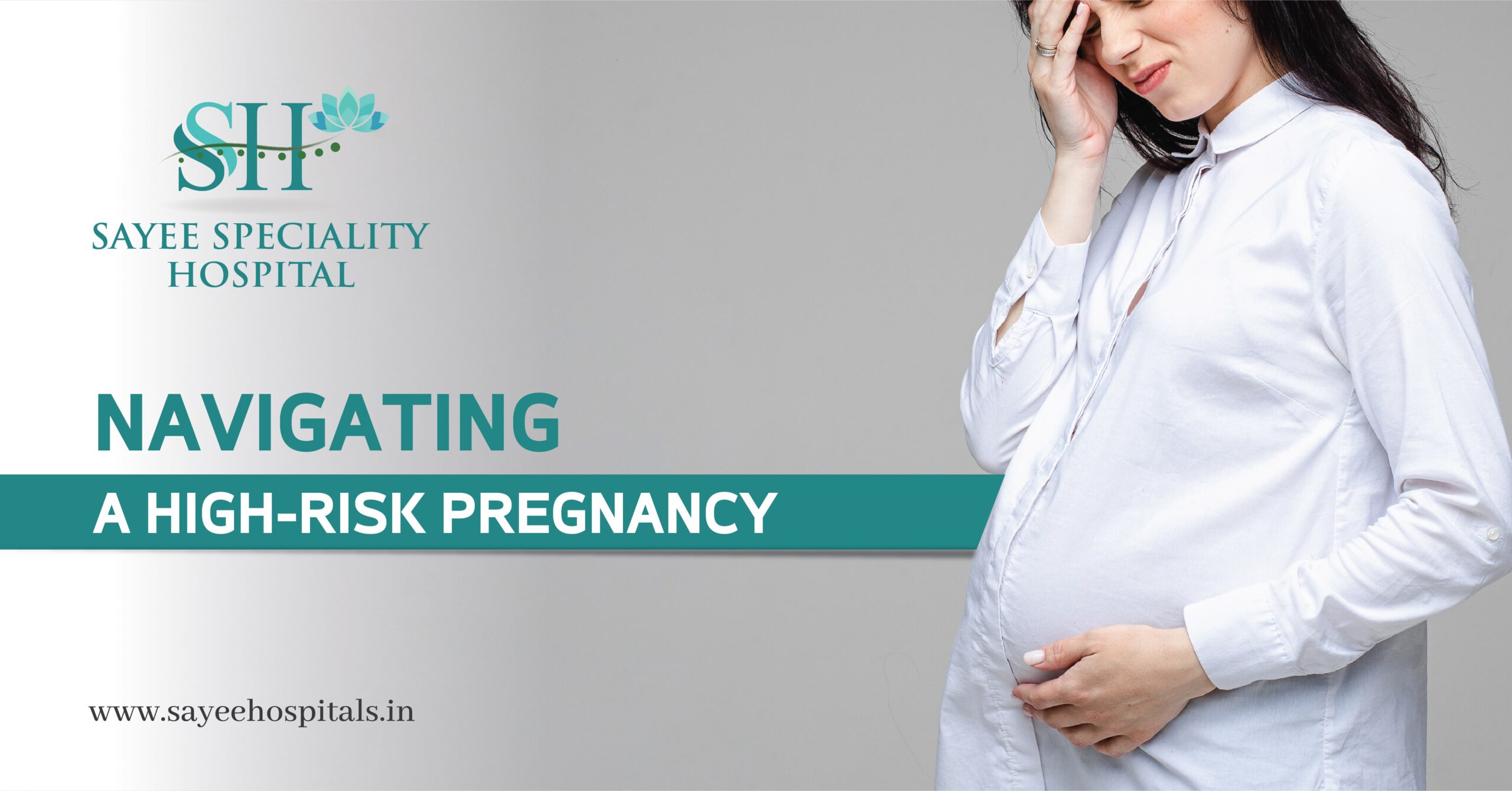A pregnancy is classified as high-risk when either the mother or the child is experiencing or expected to encounter health complications prior to, during, or following delivery. In these circumstances, close surveillance of the expectant mother is crucial throughout the entire pregnancy to prevent circumstances that could heighten the associated risks.
HERE are several factors that can contribute to a high-risk pregnancy:
- Unhealthy lifestyle choices: Eating junk food and gaining more weight-obese mothers; if the mother engages in the use of illicit drugs, smoking cigarettes, or consuming alcohol.
- Age: Both very young (below 17) and advanced maternal age (after 30) are associated with a higher likelihood of experiencing a high-risk pregnancy.
- Pre-existing health conditions: If the mother has conditions such as hypertension, obesity, depression, thyroid disease, epilepsy, heart problems, or is underweight.
- Pregnancy complications: These may include abnormal placental positioning, restricted fetal growth, rh sensitization (when the mother’s blood type is rh-negative and the baby’s is rh-positive), and mothers’ complications.
- Multiple pregnancies: The presence of twins or more increases the chances of a high-risk pregnancy.
- History of previous pregnancy complications: If the mother has experienced premature birth, genetic abnormalities, or premature labor in a previous pregnancy, these issues may recur in subsequent pregnancies as well.
If an expectant mother or a woman planning for pregnancy believes that she may be exposed to one or several of the aforementioned factors, there are measures she can take to reduce the likelihood of a high-risk pregnancy. Here are a few recommendations:
- Preconception checkup: It is essential for the woman to undergo a comprehensive checkup conducted by a qualified gynecologist. This checkup will assess her overall health, including factors such as weight, vitamin and mineral levels, and hormone balance. Various laboratory tests may be conducted to gather necessary information.
- Prenatal care: Prenatal care should not be overlooked as it plays a crucial role in ensuring a healthy pregnancy. The pregnant woman should regularly visit her doctor for continuous monitoring of her and her baby’s well-being. Common tests during prenatal care may include prenatal cell-free DNA (cfDNA) screening, invasive genetic screening, ultrasound for cervical length, specialized or targeted ultrasound, biophysical profile, and more.
- Healthy diet: During pregnancy, it is crucial for the mother to avoid addictive substances such as cigarettes, alcohol, and drugs. If she is taking medications for conditions like depression or other illnesses that may impact the pregnancy, she must consult with her doctor to assess their safety. Following a healthy diet rich in nutrients and vitamins is often beneficial in preventing a high-risk pregnancy. The gynecologist may recommend consulting with a nutritionist who can provide a personalized diet plan for the woman to follow throughout and after the pregnancy.
Symptoms that may indicate a high-risk pregnancy include:
- Acute headaches
- Vaginal bleeding or watery vaginal discharge
- Lower abdominal cramps
- Painful urination
- Blurred vision and dizziness
- Sudden swelling in hands, fingers, and face
- Reduced fetal movement
- Severe and persistent nausea
- Fever with chills
In conclusion, timely intervention and ongoing vigilance greatly reduce the likelihood of a high-risk pregnancy. It is important to be aware of the causes and attend regular prenatal appointments to maintain control. Additionally, adopting healthy lifestyle practices such as yoga, meditation, a balanced diet, maintaining a positive mindset, and avoiding addictive substances can also help women prevent a high-risk pregnancy.
